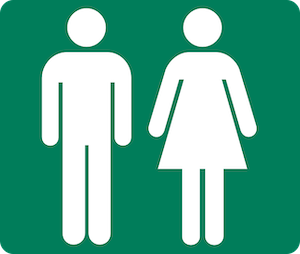Women’s rights organizations are making a renewed push for an Office of Gender Equity in the U.S. Department of Education under President Joe Biden.
In a Jan. 8 letter to the Biden-Harris transition team, the idea garnered support from 117 organizations, including the Feminist Majority Foundation, the American Association of University Women, the National Center for Transgender Equality and the National Council of Negro Women.
This comes after a similar letter sent on Dec. 17, led by the National Coalition of Women and Girls in Education. It argued that the office – headed by a special assistant for gender equity, who would report directly to the secretary of education – should be established “in order to ensure full implementation and enforcement of Title IX, with a focus on protecting the rights of women and girls of color, expectant and parenting students, LGBTQ students, students with disabilities, and English language learners.”
A formal office would help “ensure that gender equity is recognized as a core principle that cuts across program areas,” said Emily Martin, vice president for education and workplace justice at the National Women’s Law Center. “Yes, it is a part of the work of the Office of Civil Rights but it can’t be siloed there … I think an office dedicated to gender equity helps ensure that [there are] efforts focused on racial equity, efforts focused on accessibility of higher ed, efforts focused on student loan forgiveness, that there is a place where it’s people’s jobs to ask, ‘What does that mean for women and girls? And is there a particular gender analysis we also need to be bringing to this problem?’”
Martin highlighted that Black women bear the heaviest student loan debt burden of any group. She thinks broader conversations in education – like college affordability, racial disparities in school discipline and school policing – have a “gender thread” that needs to be addressed.
As Biden starts his new role, the letters also assert that a gender equity office could play a crucial role in reversing the “harms of the previous administration,” referring, among other things, to changes to Title IX protections under former U.S. Secretary of Education Betsy DeVos. Recent Title IX regulations offer more safeguards to those accused of campus sexual harassment and assault than the original federal guidelines, like allowing the accused to cross-examine potential victims. DeVos also rescinded guidance from under President Barack Obama that extended Title IX protections to transgender students, enabling them to use school bathrooms consistent with their gender identities.
Dr. Sue Klein told Ms. Magazine that one goal of the office would be to create a “coordinated system” of Title IX coordinators – operating at the state level, the school district level and in every K-12 school and on every college campus – to create a network that can “reinforce and help each other and where interested educators, parents, students and community members participate in the complete eradication of even unintentional sex discrimination and sex stereotyping in and through education.”
The Dec. 17 letter also points to the COVID-19 pandemic as a key moment to focus on gender equity for students hard hit by its effects.
For example, “LGBTQ youth and other marginalized groups are at a higher risk for cyberbullying as well as isolation within an unsupportive family,” the letter reads. “Pregnant and parenting students do not receive adequate accommodations or support to help them balance caregiving responsibilities with schoolwork and, in many cases, a part-time or full-time job during the pandemic.”
The office would be responsible for “bringing a gender lens to thinking about what do students need to be successful” in the aftermath of the “the trauma that the pandemic has created,” Martin said.
While currently in the spotlight, the idea to establish an office of gender equity in the education department isn’t new. It’s a part of the Patsy T. Mink and Louise M. Slaughter Gender Equity in Education Act of 2019, introduced by Sen. Mazie Hirono (D-Hawaii) and Rep. Doris Matsui (D-California). The act includes annual trainings for Title IX coordinators and competitive grants for universities and other institutions to improve Title IX compliance, among other measures. The letters call on the Biden administration to support not only an office of gender equity but the full bill as well.
“Since Congress passed Title IX, women and girls have made significant strides in education, but barriers still exist,” American Association of University Women CEO Kim Churches said in a statement about the legislation. “Sadly, women and girls still do not have equal access to education free from bias and discrimination.” This bill “would provide critical resources, training and technical assistance to help educational entities fully comply with Title IX.”
Martin hopes that advocacy for a gender equity office at least signals to the Biden administration that these issues need to be an education policy priority.
An office for gender equity would be “a really important structural way to ensure this work happens,” Martin said. But, ultimately, “whether or not that office is created, it’s really important that the Biden-Harris administration really focuses on these issues and makes sure that gender is part of what we’re looking at when we’re looking at how to make schools successful, safe and accessible to all students.”
Sara Weissman can be reached at [email protected].


















